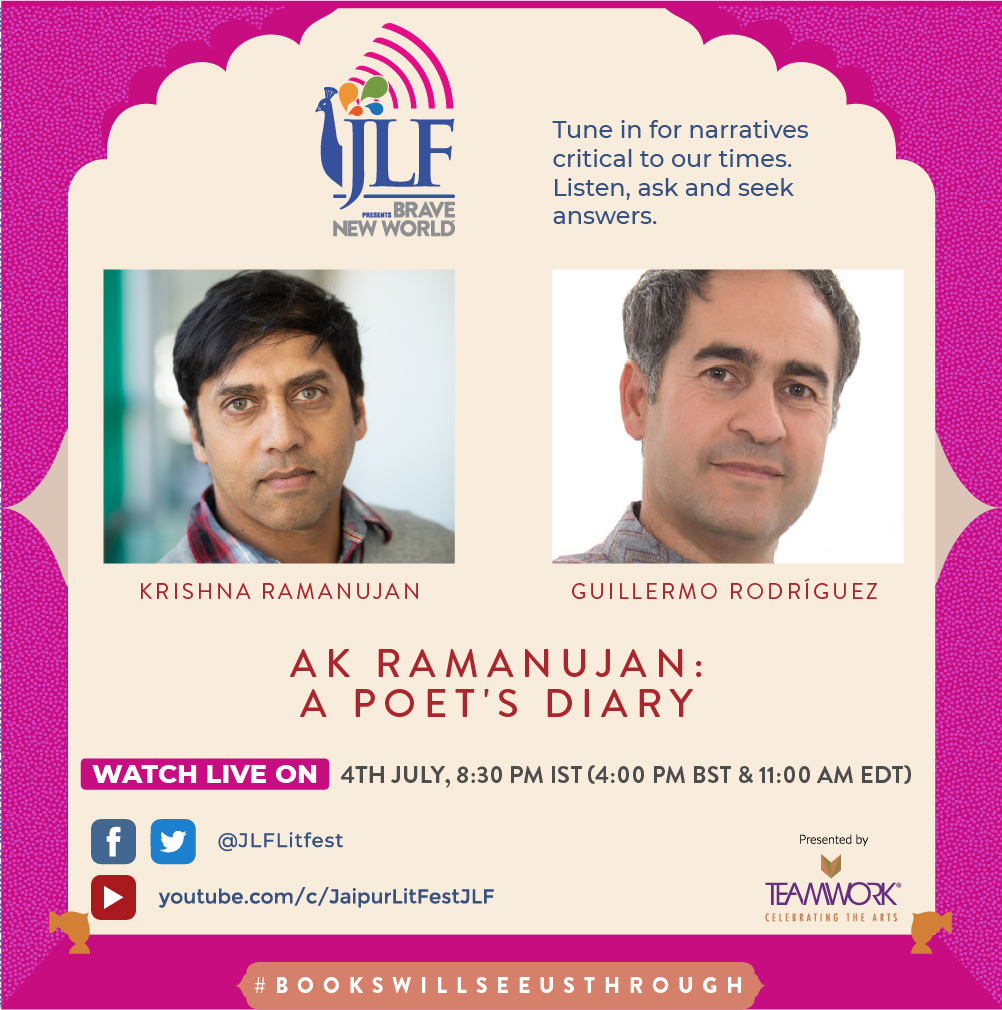Tune in for narratives critical to our times. Listen, ask and seek answers.
Watch Now
AK Ramanujan: A Poet's Diary Krishna Ramanujan in conversation with Guillermo RodrÃguez
As 2017 neared its end, Guillermo Rodriguez stumbled upon a treasure: a journal entry written by the iconic scholar A.K. Ramanujan, documenting his journey from India to the United States of America. Captivated by this discovery, Rodriguez reached out to the scholar's son, Krishna Ramanujan, and together they decided to share A.K. Ramanujan's personal diaries and journals with the world. This collection offers a glimpse into the scholar's creative process and allows readers to hear his voice firsthand.
During a session at JLF Brave New World, Rodriguez and Krishna shared extracts from the edited book, which provides an immigration story of a man dreaming of exploring the world beyond his small town. For Krishna, the process of editing the book was deeply personal and healing, as it reconnected him with his father.
Listening to Ramanujan's personal diary entries felt special for me as well, as I had grown up admiring his works. The session offered a behind-the-scenes look at the scholar's professional life, understanding how his creative ideas flowed and how vulnerable moments shaped his work.
The session highlighted significant turning points in Ramanujan's life, such as becoming a professor of English and writing the timeless poem A River in 1951. His involvement in field-work and study of folktales between 1952 and 1957 was also noted, along with the pivotal year of 1959 when he moved to the United States.
As Ramanujan left India for the United States, he expressed feelings of isolation and alienation. He saw himself as a bridge between Indian and American cultures, embodying the hyphen in "Indo-American." This sense of in-betweenness was not new to him; he had felt it even in India, where being an intellectual and holding certain views set him apart from the majority.
Ramanujan found journaling therapeutic, allowing him to explore the boundaries between the public and private. He believed in betraying oneself in writing, revealing his true thoughts and emotions.





Leave a comment